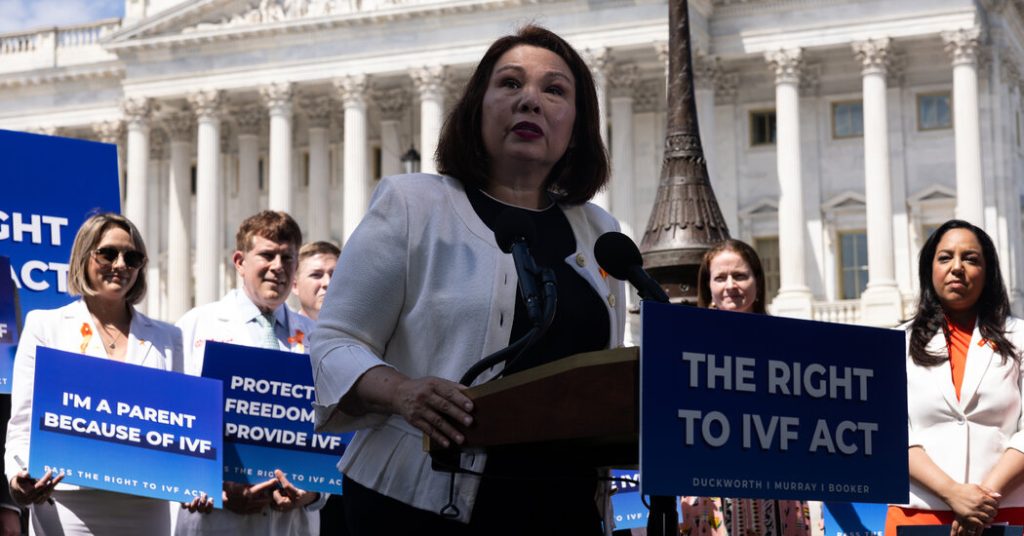Senate Republicans blocked legislation that would establish a right to access fertility treatments, such as in vitro fertilization, in a move by Democrats to highlight GOP opposition to reproductive freedoms. The bill failed to advance due to most Republicans voting against it, falling short of the 60 votes needed to move forward. This action aligns with Democrats’ strategy to remind voters where Republicans stand on abortion and reproductive health topics. Republicans have faced challenges in finding a stance on I.V.F. that satisfies their evangelical base without alienating mainstream conservatives, as many support legislation declaring life begins at conception, potentially impacting aspects of I.V.F.
Many conservative lawmakers expressed support for fertility treatments following a decision by Alabama’s Supreme Court suggesting frozen embryos be considered children, though opinions on I.V.F. ethics vary. The bill Democrats aimed to advance, the Right to I.V.F. Act sponsored by Senator Tammy Duckworth, would establish a right to fertility treatments and require government insurance providers for federal employees, military personnel, and veterans to cover them. Despite broad public support for access to I.V.F., most Republicans in the Senate opposed the measure, with only Senators Susan Collins and Lisa Murkowski crossing party lines. Republican Senators criticized the bill as a “show vote” and emphasized their support for I.V.F., accusing Democrats of using the issue for political gain.
In response to Democrats pushing for reproductive health legislation, Republican lawmakers in the House sought to incorporate anti-abortion amendments in the defense policy bill, demonstrating ongoing partisan divides on reproductive health issues. While the political landscape around I.V.F. remains contentious, with Democrats highlighting the importance of protecting access, Republicans have put forward limited proposals that lack explicit rights to fertility treatments. Some Republican lawmakers introduced a bill to block Medicaid funding to states that ban I.V.F., though this bill has drawn little support within the party and has faced criticism from anti-abortion and abortion rights groups alike.
The debate surrounding I.V.F. legislation underscores the broader ideological divisions between the two parties on reproductive health issues. Democrats argue for the need to protect access to fertility treatments and reproductive freedoms, while Republicans grapple with balancing the demands of their evangelical base with those of mainstream conservatives. The failure of the Right to I.V.F. Act reflects the challenges of bridging this divide and the opposition Republicans face in addressing the issue. As the political tussle over reproductive health legislation continues, it remains to be seen how lawmakers will navigate these competing priorities and reach a consensus on protecting access to fertility treatments such as I.V.F.


